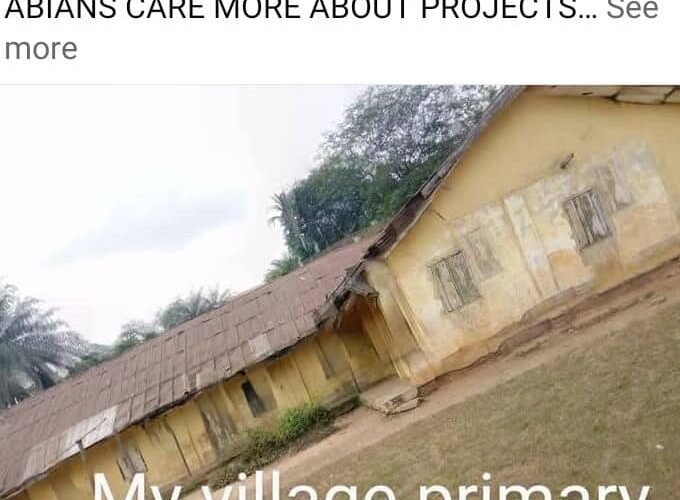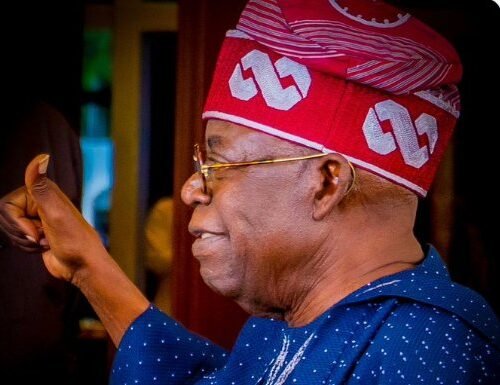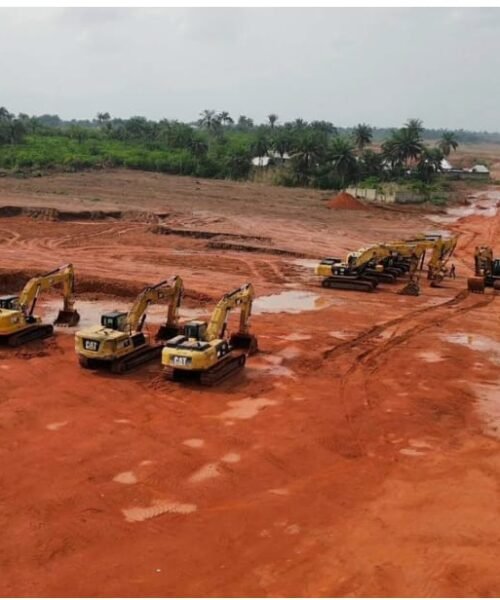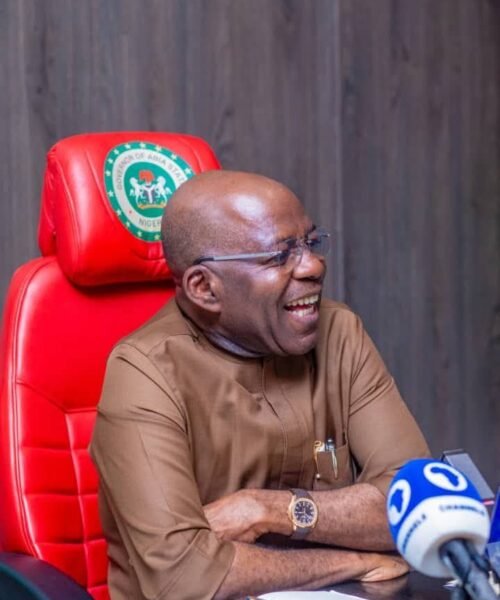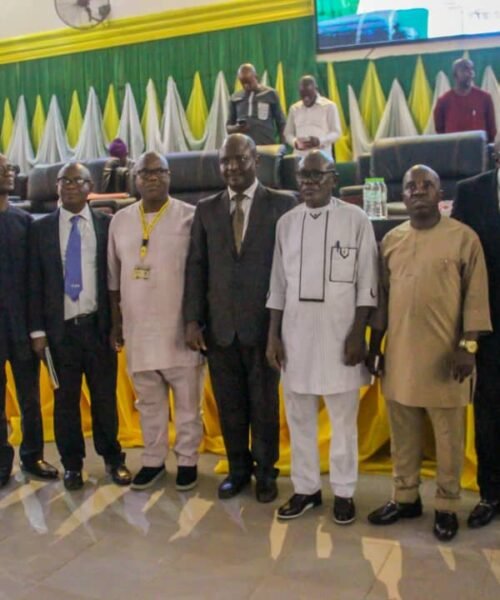Re: Eke O. Ako’s Obsession with Governor Otti, and the Ngwa Factor in 2024: Imperatives for 2025
In 2024, we have been bombarded with argument by Ngwa born activists seeking to unseat Governor Otti in 2027. They factored developlopment projects in Ngwa land as a pivotal litmus test to guage developlopment in Abia state. How sad?
Let’s do a deep dive into major voting blocs in the state, and justify why they should do a rethink of their strategy, which quite frankly is an impossible task for them. Thank God all the same, it keeps us a busy in projecting our vintage positions. Yet again, thank God Abians are not blind to their gimmicks.
The 2019 Abia State gubernatorial election saw a total of 1,932,892 registered voters, with 444,376 votes cast. The People’s Democratic Party (PDP) candidate, Okezie Ikpeazu, won the election with 261,127 votes, accounting for 60.26% of the total votes cast. The All Progressives Congress (APC) candidate, Uchechukwu Sampson Ogah, secured 99,574 votes, while the All Progressives Grand Alliance (APGA) candidate, Alex Otti, secured 64,366 votes.
In the Abia North senatorial district, the PDP performed well in Ohafia LGA, securing 19,346 votes, while the APC had its strongest showing in Isuikwuato LGA with 14,146 votes. The APGA candidate, Alex Otti, secured 3,119 votes in Isuikwuato LGA.
The Abia Central senatorial district saw the PDP win convincingly in Osisioma LGA with 19,835 votes. The APC secured 1,981 votes in Osisioma LGA, while APGA secured 2,511 votes. In Umuahia North LGA, the APC secured 16,833 votes, closely trailing the PDP’s 15,627 votes.
In the Abia South senatorial district, the PDP secured a significant lead in Obingwa LGA with 78,803 votes. The APC secured 3,390 votes in Obingwa LGA, while APGA secured 3,601 votes. In Aba North LGA, the PDP secured 8,429 votes, closely followed by the APC’s 4,209 votes.
Unfortunately, the results for Isiala Ngwa North, Isiala Ngwa South, Ukwa East, Ukwa West, and Umu Nneochi LGAs were not provided in the initial data. These areas are crucial in understanding the overall voting pattern in Abia State during the 2019 gubernatorial election.
Governor Alex Otti, the then Labour Party (LP) candidate in, had made multiple attempts to become the governor of Abia State. His persistence and determination finally paid off in 2023 when he emerged victorious. This was his third attempt at the governorship seat, having previously contested in 2015 and 2019.
Otti’s journey to the governorship seat was not an easy one. He faced stiff competition from other candidates, particularly from the People’s Democratic Party (PDP) and the All Progressives Congress (APC). However, his message of change and good governance resonated with the people of Abia State, who were eager for a new direction.
With his victory in 2023, Dr Alex Chioma Otti, OFR has become the first Labour Party candidate to win the governorship seat in Abia State. His win is seen as a testament to the power of perseverance and the desire for change among the people. As governor, Otti is expected to bring about significant reforms and improvements to the state, building on his campaign promises.
The People’s Democratic Party (PDP) has been accused of falsifying election results rather than winning them fairly. This claim suggests that the party has been engaging in electoral malpractices, undermining the democratic process and the will of the people. The implications of such actions are severe, eroding trust in institutions and perpetuating a culture of impunity.
The PDP’s alleged manipulation of election results has reportedly led to widespread disenfranchisement and disillusionment among voters. In Abia State, for instance, the party’s perceived high-handedness and lack of transparency in electoral processes have contributed to its declining popularity. The people’s rejection of the PDP in the 2023 gubernatorial election may be seen as a testament to their desire for genuine change and accountable leadership.
As Nigeria continues to grapple with the challenges of electoral integrity, it is essential to address the PDP’s alleged complicity in result falsification. This requires a concerted effort from electoral authorities, civil society organizations, and citizens to promote transparency, accountability, and fairness in the electoral process. By doing so, Nigeria can strengthen its democratic institutions and ensure that the will of the people is truly reflected in election outcomes. Now, back to the our gist.
Understanding the voting patterns and demographics of these blocks is crucial for any political party or candidate seeking to win elections in Abia State.
The Imperative of Fairness
As I have noted earlier, this article will not change his self conceived posture on Otti. His allies are bent on derailing the Otti-led Wave 🌊 initatives. However, as a public figure, Eke O. Ako has a responsibility to maintain fairness and impartiality in his remarks. According to a survey by the Pew Research Center, 85% of Nigerians believe that public figures should be fair and unbiased in their statements. Furthermore, a study by the Centre for Democracy and Development found that sectional remarks by public figures can lead to social unrest and conflict, with 70% of respondents citing such remarks as a major contributor to social tensions.
Promoting Unity and Cohesion
Eke O. Ako’s fairness and impartiality are crucial for promoting unity and cohesion among diverse groups in Abia State. According to the National Bureau of Statistics, Abia State’s estimated population for 2024 is approximately 4,143,100, based on the 2022 population projection. This estimate indicates a steady growth rate from the 2016 estimated population of 3,727,347. comprising various ethnic, religious, and cultural groups. A survey by the African Development Bank found that 90% of Abia State residents believe that unity and cohesion are essential for the state’s development.
Maintaining Credibility
Fairness and impartiality are essential for maintaining his credibility and trustworthiness. According to a study by the Harvard Kennedy School, public figures who are perceived as biased or sectional can suffer a significant loss of credibility, with 80% of respondents citing such perceptions as a major contributor to declining trust. Furthermore, a survey by the Pew Research Center found that 95% of Nigerians believe that credibility is essential for effective leadership.
Respecting Diversity
I wholeheartedly recognize the importance of the Ngwa bloc notwithstanding. However, we should be mindful of the fact that a majority of Ngwa people support the house cleaning efforts of the Governor. Eke O. Ako should respect and acknowledge the diversity of Abia State’s population. According to the National Population Commission, Abia State has a diverse population comprising various ethnic groups, including the Igbo, Ibibio, and Efik. A study by the Centre for African Studies found that respecting diversity is essential for promoting social cohesion and development, with 85% of respondents citing diversity as a major strength of African societies. If your school has not been renovated, write to the Governor privately reminding him. Write to Ngwa sons and daughters in government. Do not stir up sentiments and thereby weaken our standing. Social Media is indeed a good guage. But remember, bad news travels fastest than good news. Tone down or come down and test your electoral prowess just as the Governor did. You are vital to us as well Sirrrrrrrr.
Fostering Inclusive Governance
As a public figure, you should promote inclusive governance, where every individual and group feels represented and valued. According to a survey by the United Nations Development Programme, inclusive governance is essential for promoting development and reducing poverty. A study by the World Bank found that 90% of Nigerians believe that inclusive governance is essential for promoting economic growth and development.
Upholding Democratic Norms
We, researchers and writers uphold democratic norms and values, including fairness, justice, and equality. This is because according to a study by the National Democratic Institute, democratic norms are essential for promoting democratic governance and development. A survey by the Pew Research Center found that 95% of Nigerians believe that democratic norms are essential for promoting accountability and transparency in government.
Consequences of Overhyped Sectional Remarks
Finally, Eke O. Ako should be aware of the consequences of sectional remarks. According to a study by the Centre for Democracy and Development, sectional remarks by public figures can lead to social unrest and conflict, with 70% of respondents citing such remarks as a major contributor to social tensions. Furthermore, a survey by the Pew Research Center found that 95% of Nigerians believe that sectional remarks can damage social cohesion and development.
In conclusion, Eke O. Ako’s responsibility as a public figure to maintain fairness and impartiality in his remarks cannot be overstated. With 85% of Nigerians believing that public figures should be fair and unbiased, it is clear that fairness is a fundamental expectation of leadership. By promoting unity, maintaining credibility, respecting diversity, fostering inclusive governance, and upholding democratic norms, Eke O. Ako can demonstrate his commitment to fairness and impartiality.
The consequences of sectional remarks by public figures like himself are severe. Social unrest, conflict, and damage to social cohesion and development are all potential outcomes of biased or sectional statements. With 70% of respondents citing sectional remarks as a major contributor to social tensions, it is clear that public figures have a critical role to play in promoting social harmony. By avoiding sectional remarks and promoting fairness an impartiality, Eke O. Ako can help to build a more united and harmonious society.

Ultimately, the imperative of fairness and impartiality for public figures is rooted in the principles of democratic governance and leadership. By upholding these principles, he can demonstrate his commitment to the well-being and prosperity of all Abia State residents, regardless of their ethnic, religious, or cultural backgrounds. As a public figure, he has a unique opportunity to promote fairness, unity, and development in Abia State, and it is essential that he seizes this opportunity to make a positive impact.
Dr Chukwuemeka Ifegwu Eke writes from the University of Abuja Nigeria

